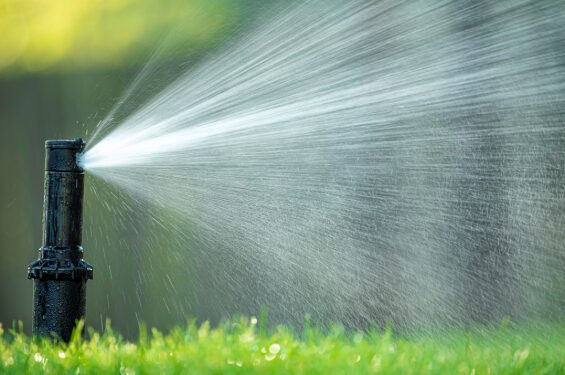
It is a universal truth hungry critters will eat your vegetables and flowers. So you will need some form of barrier to protect your plants this spring as best you can. You may not stop the animals entirely but you’ll surely slow them down. Different threats mean different protection is needed. Learn ways to keep animals out of your garden below:
1. Fence your garden
A deer is the biggest threat to your garden. A hungry deer will eat just about anything and what it doesn’t completely destroy, it – and its buddies – will nibble to death.
- Large garden – If you have a large garden plot, you will need sturdy wooden posts to hold strong, steel deer fencing. That fencing must be at least eight feet high because a deer can hop over a six-foot-high fence on its sturdy hind legs the way you’d walk over a sidewalk crack. Many people use electric fencing. Here you only need the fencing to be five feet high with the first wire 10 inches off the ground and four spaced wires about 12 inches apart, according to experts.
- Small garden – If, however, you have a smaller plot, or a garden that runs along the side of the house (known as a moustache garden), you have several options. Deer do not like to leap into a small or confined space, so if your garden is against the house, a six-foot-high fence of deer mesh or netting attached to bamboo, metal or plastic poles should be enough.
For a free-standing, smaller plot, you can use poles four to six feet high to attach deer fencing around the perimeter of your garden, and then put up another circle of netting and poles four feet from that – think of a moat.
2. Consider repellants
Liquid deer repellent you spray on the plants won’t necessarily do the trick unless you are willing to constantly reapply it, particularly after rain.
Or, if your garden is small and you don’t want a fence, you can try a big border of plants deer tend to avoid. Daffodils, for instance, are completely poisonous to eat — root, stem and flower. Herbs, particularly those with a strong scent, will also deter deer, as will such flowers as marigolds, peonies and cosmos.
3. Install a metal hardware cloth
Groundhogs, squirrels, and chipmunks will dig to get into your fenced-in garden. If you have a vegetable garden, they will eat those vegetables. If you have flowers, what they won’t destroy they will dig up and leave exposed to the air, killing them unless you put them back into the ground.
Fencing is effective but you will also need a steel barrier of what’s called a “metal hardware cloth” dug anywhere from two to four feet deep around your garden. The deeper, the better. Make sure the fencing is secure, too, with no access.
Speaking of which, rabbits won’t dig under your garden but an opening will soon have them chewing your carrots and the leafy greens of a number of flowers and vegetables.
4. Cover your plants with garden fabric
If you are growing blueberries or fruiting bushes you can cover them with nylon mesh when the fruit starts to ripen. In a garden plot, you can fence in the plants using posts that are taller than you are. Then put on a “ceiling” of netting to deter the birds from flying down to pick off the fruit.
Now that you know how to protect your garden, consider protecting your property. There are different types of homeowners insurance policies that cover structures that are not attached to your home.



